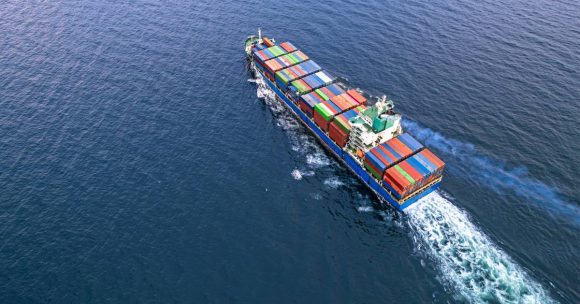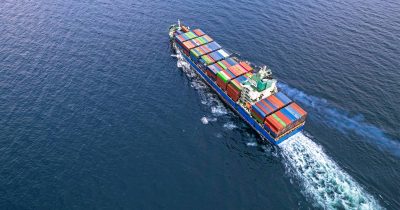The ongoing Red Sea crisis has no end in sight, forcing shipping companies to look at alternative routes. The Port of Salalah in Oman has come up with a solution. It has introduced a multi-modal service option as an alternative to re-routing around the Cape of Good Hope.
The Red Sea disruptions have had a major effect on logistics and shipping companies. The port highlights why it is ideal. “With an annual capacity of 5 million TEU and expansion currently in progress to add an additional 30% capacity, the Port of Salalah is ideally located on the main ocean routes connecting South and East Asia with Europe, North Africa, and the Americas, and the upper Gulf with East Africa.”
Why does this matter? “Unlike other popular transshipment ports in the region, no detour from the main East-West shipping routes into the Gulf of Oman is required, saving a 4-5 day detour from main east-west shipping routes.”
Reduced travel time
Trucks transport goods from the Port of Salalah to Jeddah, Saudi Arabia, which is located in a safer part of the Red Sea. This overland journey takes about 4 to 5 days. Once in Jeddah, goods are loaded onto ships and can then travel through the Suez Canal to Europe or the US East Coast. This new route can reduce the total travel time compared to the current routing.
Air/Sea option for priority freight
The Red Sea disruptions have also forced companies needing to send freight fast to use air freight. Timing has been of utmost importance amid the “logistics nightmare,” as some may refer to it.
“A further sea-air option provides a faster alternative for more time-sensitive cargo into and out of Europe. Upon discharge in the Port of Salalah, cargo is transferred in transit to either Salalah or Muscat Airports or even Jebel Ali depending on availability of airlift capacity and connections,” the port released in a statement.
Why would this option work? “This option reduces the lead time compared to a full ocean leg and reduces cost compared to a full air freight option. The new multi-modal service reduces transit times by an estimated 20-40% compared to traditional east-west trade routes and could deliver a cost saving of 10-20% compared to a pure air-freight solution.”
Flexible supply chain
The Red Sea has shown the logistics world they need to be resilient. In the UK, the government established the Critical Imports Council to safeguard the flow of goods.
The Port of Salalah has modern container freight facilities that can be used to build flexibility to supply chains and customer-designed intermodal solutions.
“The Port recently teamed up with Maersk, Oman Airports and Transom to introduce a number of sea-air solutions via the Port of Salalah with steady movements which are currently gaining momentum.”
ALSO READ: Red Sea crisis: What is it doing to your business?
About the author
Sharl is a qualified journalist. He has over 10 years’ experience in the media industry, including positions as an editor of a magazine and Business Editor of a daily newspaper. Sharl also has experience in logistics specifically operations, where he worked with global food aid organisations distributing food into Africa. Sharl enjoys writing business stories and human interest pieces.











